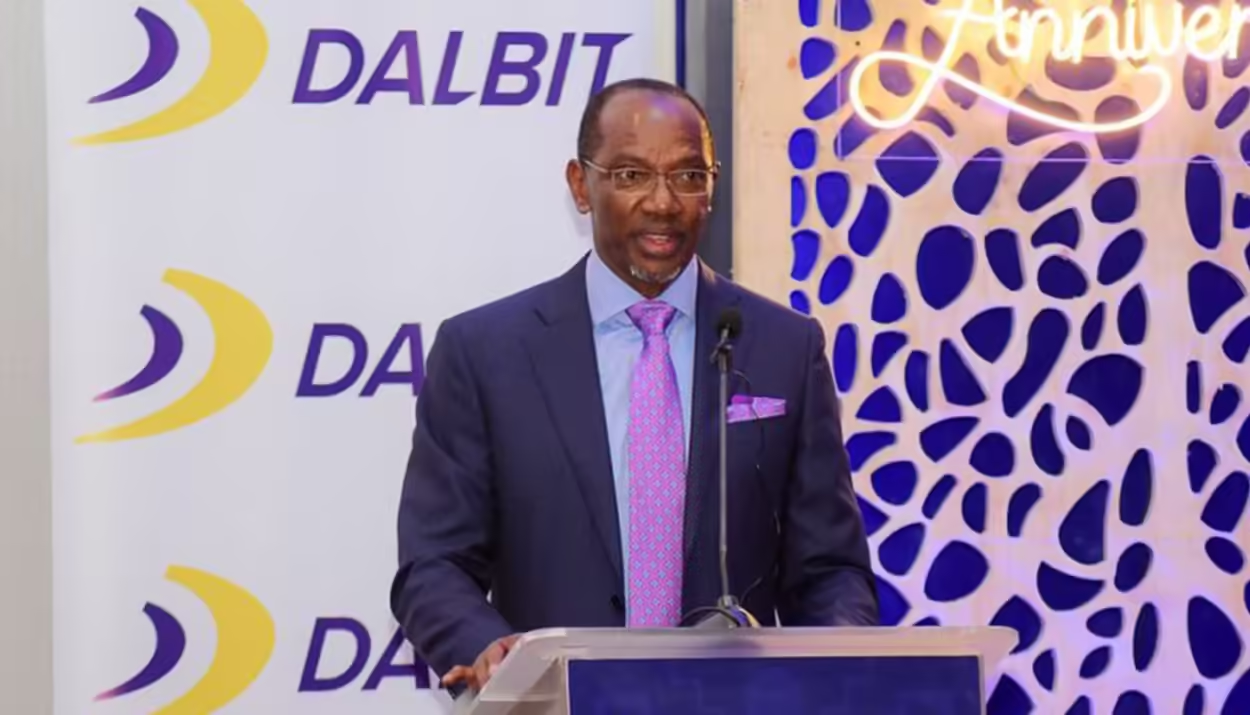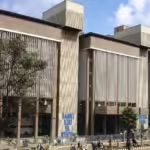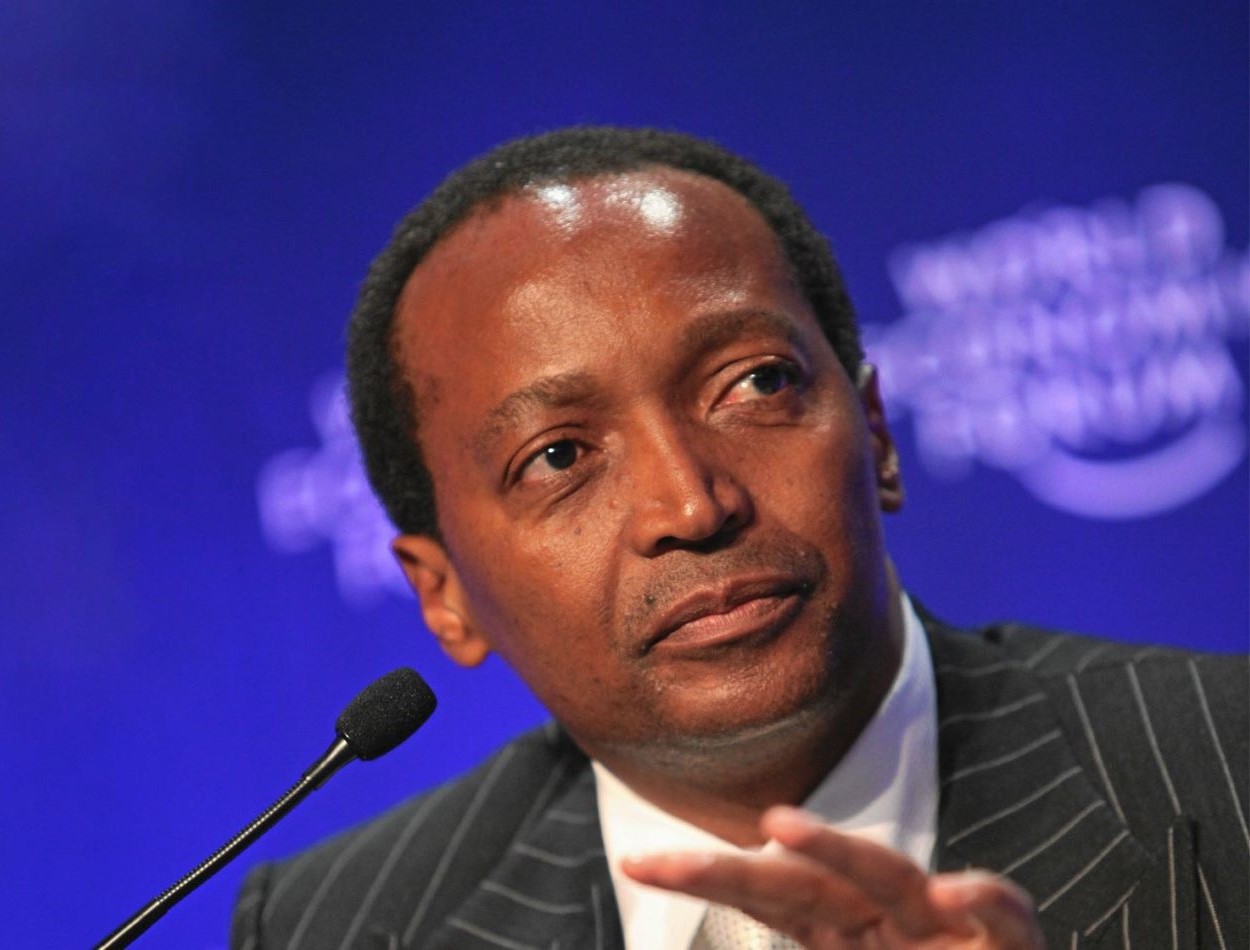Humphrey Kariuki is a name that stirs curiosity in Kenya’s business circles. He’s not a regular on the conference circuit, rarely gives interviews, and you won’t find him flaunting his wealth on social media. Yet, behind the scenes, he’s quietly built one of Africa’s most diverse business empires — stretching from petroleum and power generation to banking, real estate, and wildlife conservation.
Kariuki’s path to fortune isn’t paved with flashy headlines or public deals. Instead, it’s a story of calculated risks and long-term bets in demanding industries — the kind most investors avoid. His companies operate across some of the continent’s most challenging markets, and his influence runs deep, even if his public profile remains low.
While his name has popped up in the news — usually around tax disputes or legal sagas — the full scale of what he’s built is rarely understood. This is the story of the man behind Janus Continental Group, Dalbit Petroleum, Africa Spirits, and the Mount Kenya Wildlife Conservancy — a man whose empire is as complex as it is quietly powerful.
Contents
Humble beginnings
Born in 1957 in the central highlands of Kenya, Humphrey Kariuki was one of ten children raised in a modest family. His father was a teacher, and his mother a homemaker. Like many children in post-independence Kenya, Kariuki learned discipline and hard work early on. His academic path led him through Nairobi School and Kagumo High School before he landed a clerk job at the Central Bank of Kenya at 19.
At the Central Bank, Kariuki was first exposed to high finance. There, he developed a sharp eye for numbers, monetary policy, and the formal architecture of institutional banking — knowledge that would serve him well in the years to come.
But it was entrepreneurship, not civil service, that genuinely beckoned. In the early 1980s, as Kenya’s economy liberalized and import restrictions eased, Humphrey Kariuki leapt into the business world. He started by importing used cars from Japan and Europe for resale — a venture that quickly grew profitable and funded his next steps.
He expanded into hospitality with the opening of Green Corner Restaurant in downtown Nairobi, which became a favourite lunchtime haunt for bankers, politicians, and journalists. Not long after, he founded Wines of the World, one of Nairobi’s first high-end liquor stores, introducing a wave of imported spirits to a local market hungry for variety and sophistication.
Building Janus Continental Group
By the early 2000s, Kariuki had evolved from a serial entrepreneur into a corporate architect, founding Janus Continental Group (JCG), a holding company for his increasingly diverse business interests. JCG now operates across over 10 African countries, the United Arab Emirates, and parts of Europe, employing over 700 people across sectors.
The group’s philosophy, according to insiders, is rooted in long-term growth, market creation, and patient capital. Kariuki is known for entering sectors with significant barriers to entry — industries that require upfront capital, deep local knowledge, and the kind of patience many investors shy away from.
Dalbit Petroleum
Founded in 2002, Dalbit Petroleum is perhaps Kariuki’s most visible venture. The company supplies and distributes petroleum products across East, Central, and Southern Africa. Dalbit entered logistically challenging markets, including South Sudan and the Democratic Republic of Congo. The strategy was simple: go where others won’t.
Dalbit’s success has been underpinned by its ability to establish infrastructure under challenging terrains — including bulk fuel storage depots, transport systems, and inland distribution centres. It also supplies aviation fuel, industrial lubricants, and diesel to public and private clients.
Dalbit has also focused on sustainability, investing in cleaner energy alternatives and compliance with international environmental standards. It has become a reliable name in a volatile sector plagued by supply disruptions and corruption.
GL Africa Energy
GL Africa Energy (GLAE), another jewel in Kariuki’s crown, is a UK-registered independent power producer focusing on the Great Lakes and Southern Africa regions. GLAE’s flagship project is the 105 MW Ndola Energy power plant in Zambia, built to convert heavy fuel oil into electricity to stabilize the national grid.
The company’s other projects include proposed power plants in Tanzania and Mozambique, where energy deficits remain a significant barrier to economic development. Through GLAE, Kariuki aims to close Africa’s vast energy access gap by investing in mid-sized, locally relevant power solutions.
BSL Infrastructure
BSL Infrastructure provides the backbone to many of JCG’s operations. It specializes in constructing fuel depots, tank farms, and logistics corridors — the unsung heroes of Africa’s supply chain. The company has executed projects in Tanzania, Uganda, Kenya, and Rwanda, often partnering with governments to build public-private infrastructure.
These strategic assets give JCG greater control over the entire energy value chain — from sourcing to storage to distribution — reducing third-party dependency and enabling better pricing.
Spirits, shopping malls, and safari clubs
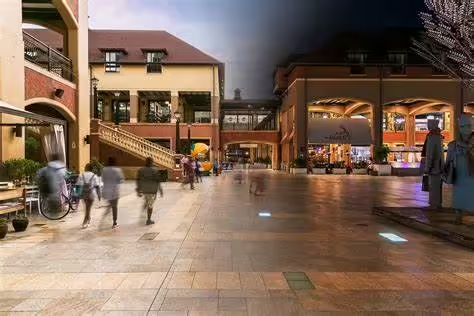
While Kariuki’s energy ventures provide the backbone of his empire, he’s also left a significant footprint in the retail, real estate, and lifestyle sectors.
Africa Spirits Limited
In 2004, Kariuki entered the alcohol business by acquiring Africa Spirits Limited (ASL), a Thika-based distillery. The company produced affordable yet popular brands such as Bluemoon vodka and Legend brandy, which dominated the market among lower and middle-income consumers.
Strong distribution networks, competitive pricing, and aggressive marketing aided ASL’s rapid growth. At its peak, the company controlled a significant share of Kenya’s spirits market. But it would also become the source of Kariuki’s most high-profile legal trouble — a tax case that threatened to dismantle his legacy.
The Hub Karen
In 2016, Humphrey Kariuki co-developed The Hub Karen, a KSh 4 billion shopping and lifestyle mall in Nairobi’s leafy suburb of Karen. The mall features anchor tenants like Carrefour, Java House, and luxury retailers and serves as a key hub for local and expatriate communities.
Its central feature — a man-made lake surrounded by restaurants and children’s parks — makes it not just a shopping destination but a leisure space. The Hub reflects Kariuki’s ability to blend form and function, commerce and community.
Fairmont Mount Kenya Safari Club
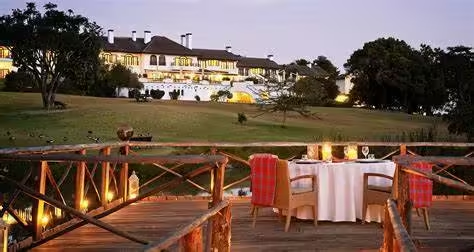
Purchased in 2015, the Fairmont Mount Kenya Safari Club is one of Kenya’s most historic luxury hotels. Originally built by Hollywood star William Holden, it’s hosted presidents, celebrities, and business tycoons. Under Kariuki’s ownership, the hotel has been refurbished and repositioned as a beacon of luxury and conservation.
It is also a gateway to the Mount Kenya Wildlife Conservancy — Kariuki’s most personal project.
The Mount Kenya Wildlife Conservancy
At the heart of Kariuki’s conservation work is the Mount Kenya Wildlife Conservancy (MKWC), a non-profit trust founded to preserve the ecological integrity of the Mount Kenya ecosystem. The conservancy is home to one of the few breeding programs for the endangered Mountain Bongo, a magnificent forest antelope that has almost vanished from the wild.
The Conservancy also operates an animal orphanage that rehabilitates injured or orphaned animals for release into the wild. Beyond this, MKWC has become a key player in conservation education, hosting school groups, researchers, and volunteers to promote wildlife awareness.
Humphrey Kariuki personally funds much of the conservancy’s operations. For him, conservation is not a side hobby — it’s a lifelong passion rooted in his upbringing near Mount Kenya. He aims to reintroduce the Mountain Bongo into the wild within the next decade, helping reverse decades of environmental degradation.
ALSO READ: SK Macharia: From civil service to a successful media mogul
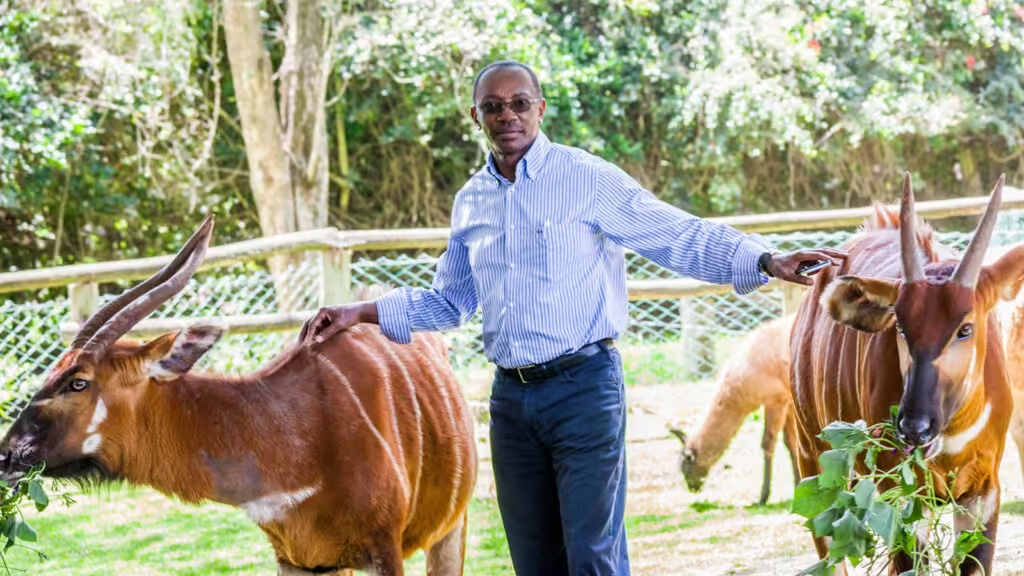
Legal troubles
In early 2019, the Kenya Revenue Authority (KRA) accused Africa Spirits Limited of evading taxes exceeding KSh 40 billion. The claims were that ASL had manufactured alcohol using counterfeit excise stamps and under-declared production volumes.
The Directorate of Criminal Investigations launched a full-scale investigation, leading to the seizure of property, closure of ASL’s plant, and freezing of Kariuki’s accounts. The businessman briefly went into hiding and re-emerged to deny all charges.
The case dragged on for over two years and became one of Kenya’s most closely watched corporate legal battles. In 2021, the High Court dismissed the charges, citing lack of evidence and procedural flaws. While Kariuki was cleared, the episode damaged his public image and exposed the fragile relationship between Kenya’s tax authorities and private capital.
Some analysts viewed the case as politically motivated — possibly tied to rival business interests or internal power struggles within the state. Regardless of its origins, Kariuki emerged more guarded, media-shy, and ambitious.
The man behind the billions
Despite being one of Kenya’s wealthiest individuals, Humphrey Kariuki remains intensely private. He rarely appears at public functions, seldom speaks to the media, and prefers to work through proxies and professionals.
He holds dual citizenship in Kenya and Cyprus, a decision that drew scrutiny during his legal troubles. But those close to him say he’s deeply committed to Kenya, with most of his investments firmly rooted in the country.
Friends and associates describe him as meticulous, thoughtful, and long-term oriented. He reviews business proposals, walks through project sites, and sits in on strategy meetings. He dislikes flamboyance and often dresses casually, blending in with the people around him.
Legacy
Today, Humphrey Kariuki stands at a crossroads. His energy ventures are expanding, his hotel is thriving, and his conservation work is gaining global recognition. Yet he operates in a country with high political and regulatory risks, and wealth can quickly become a target.
As African economies mature and local capital becomes more central to development, Kariuki’s trajectory offers cautionary and inspirational lessons about what it means to build in Africa, for Africa.
Like Humphrey Kariuki, his empire remains quiet, resilient, and built for the long haul.

